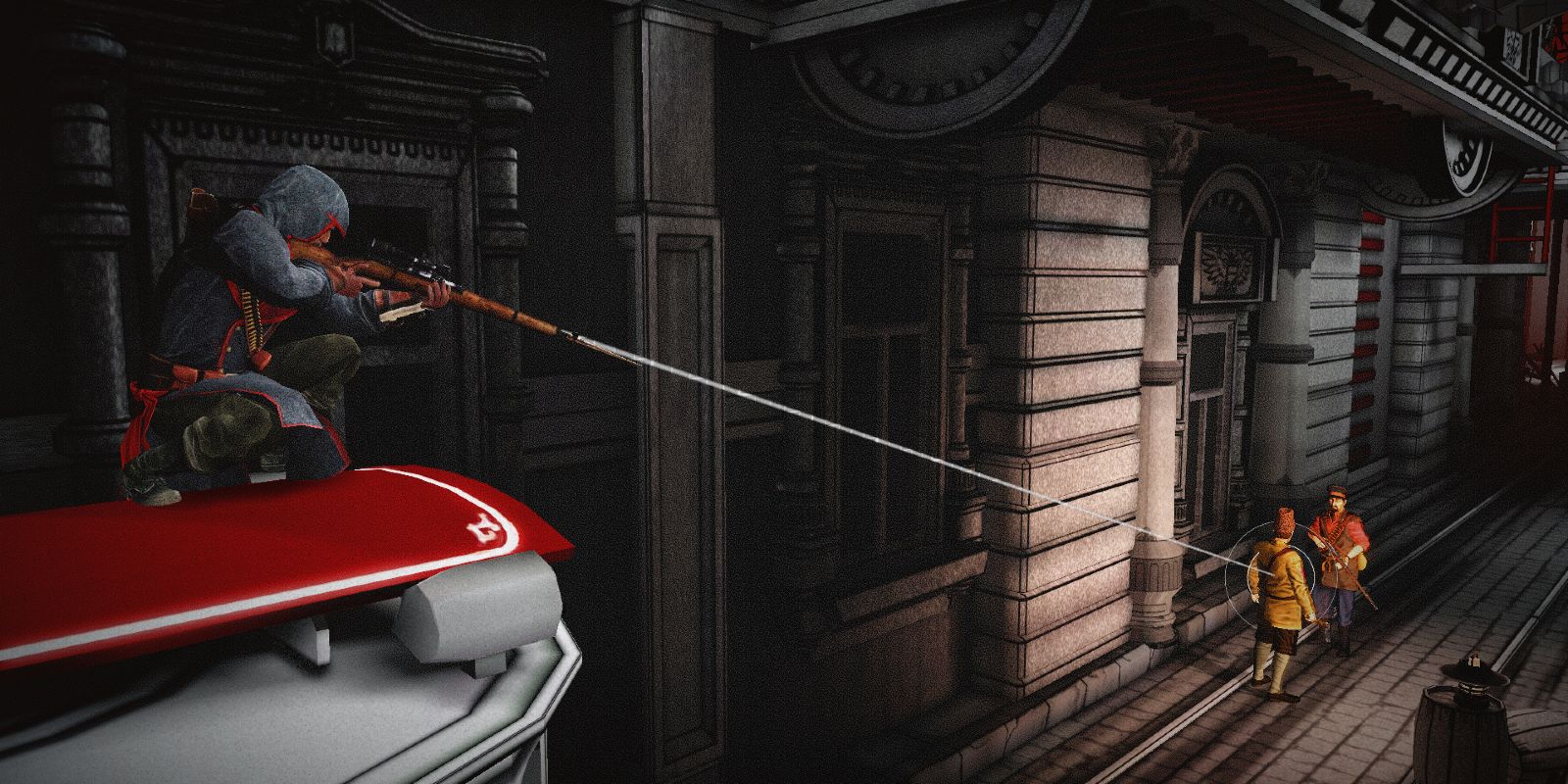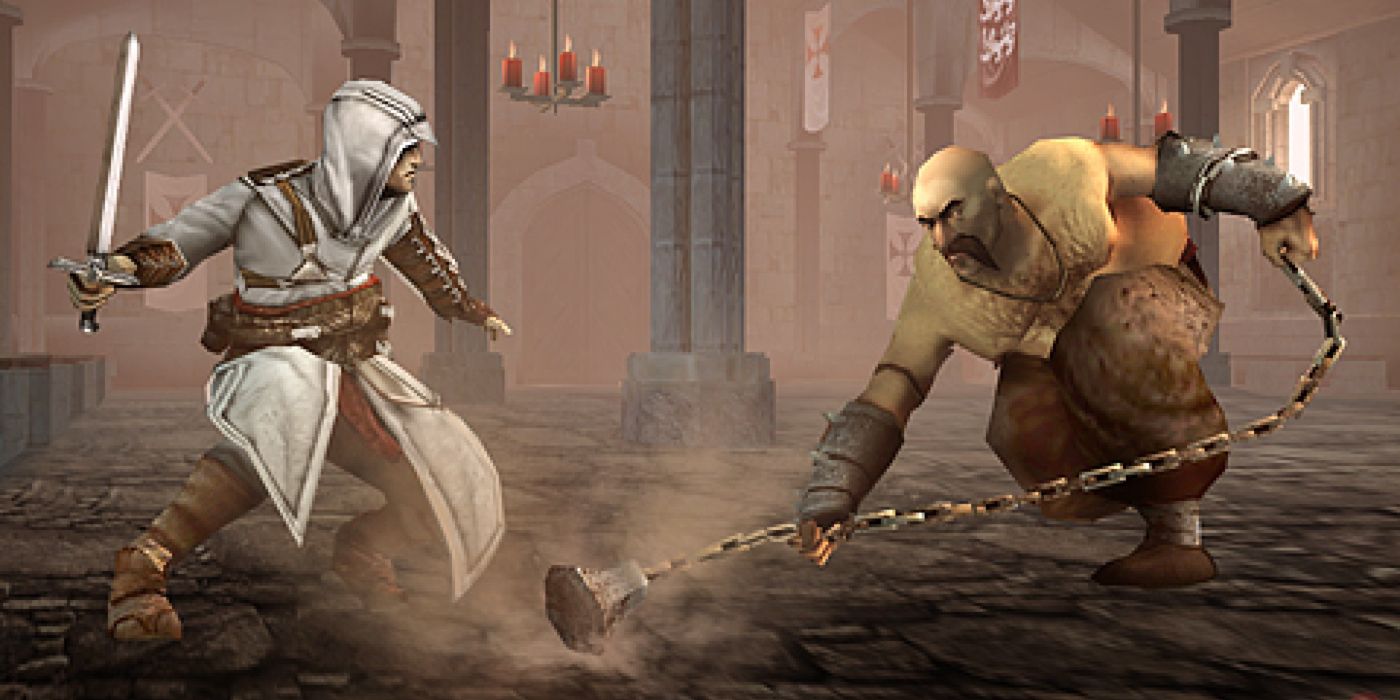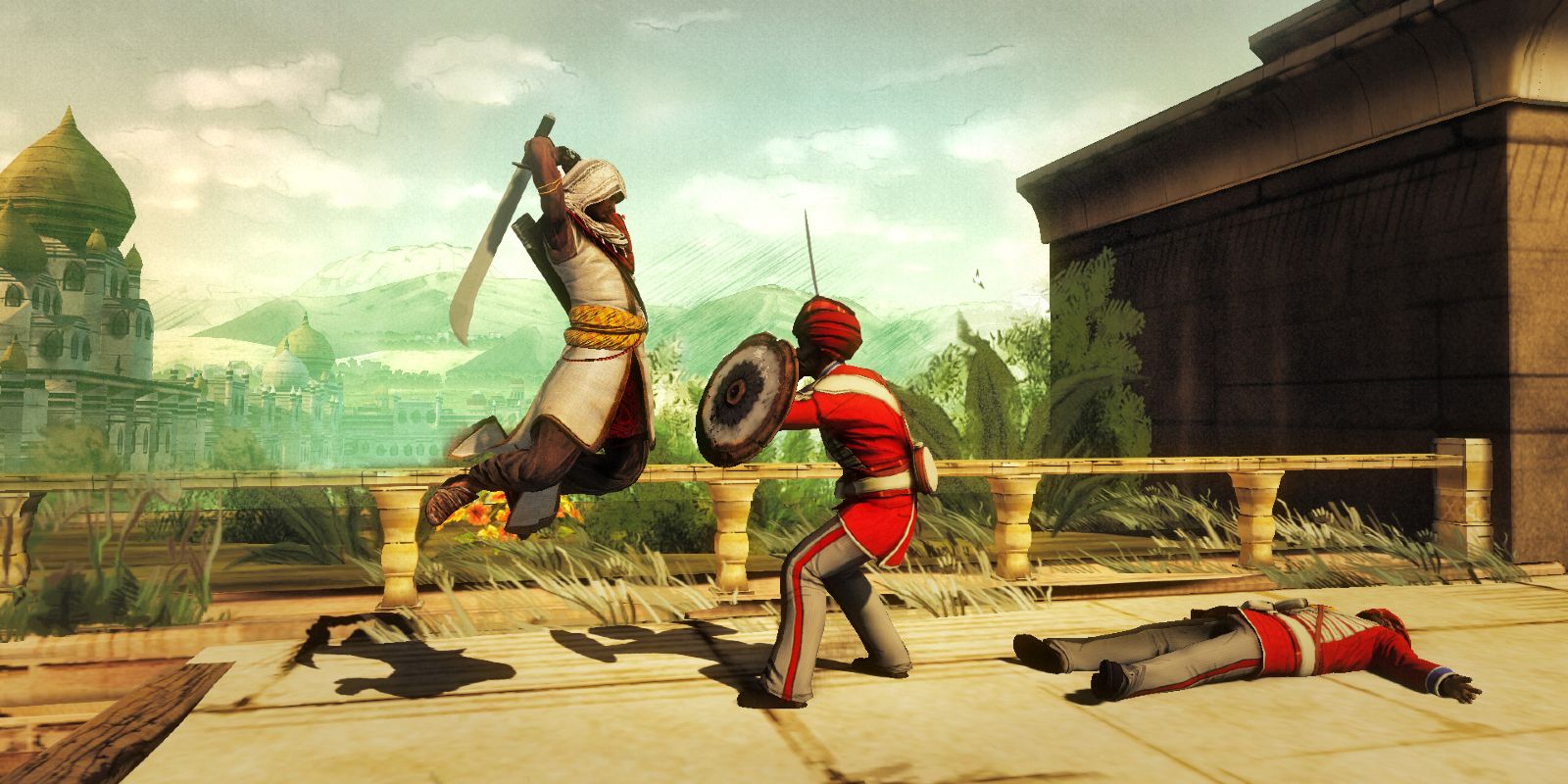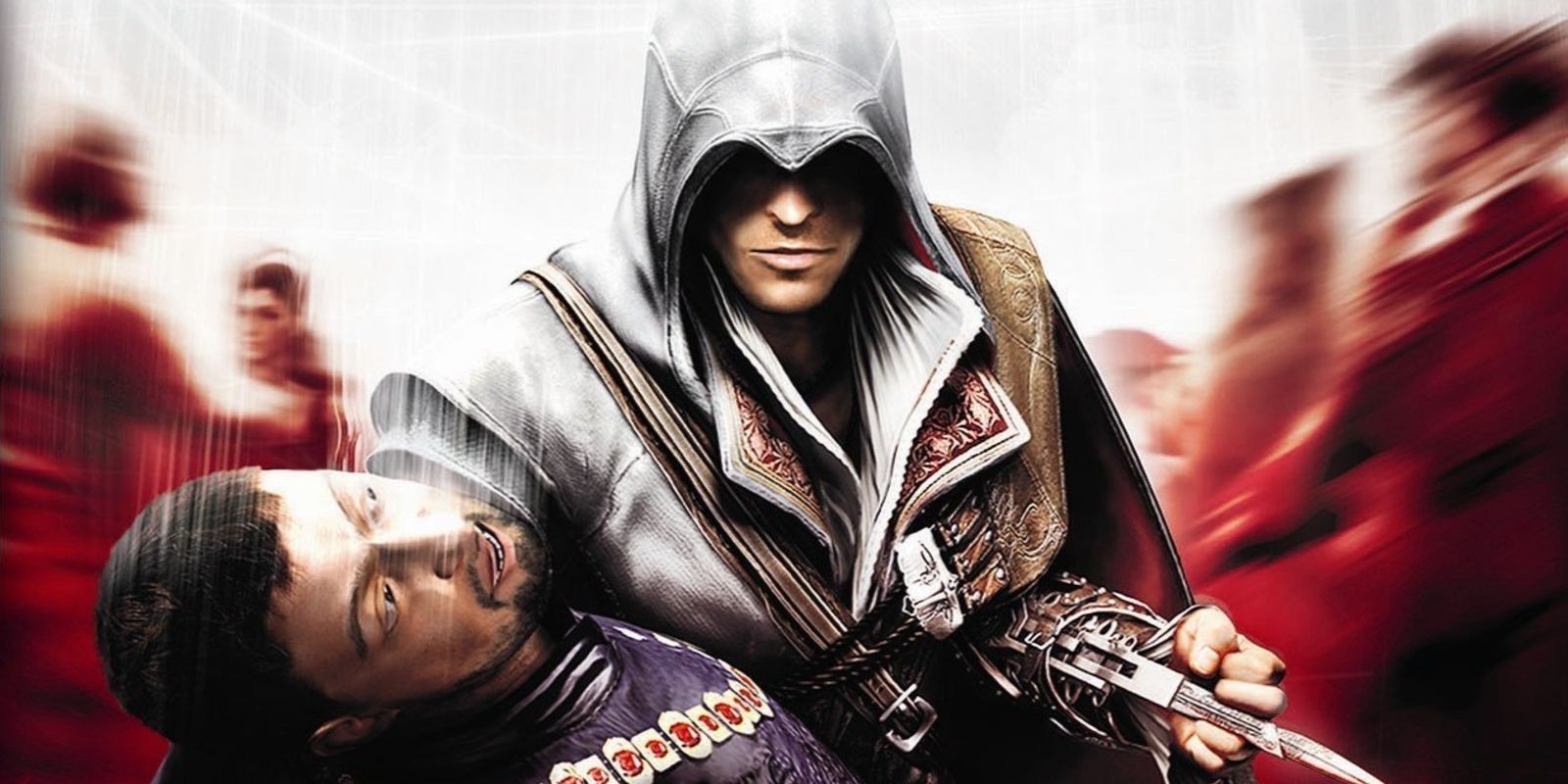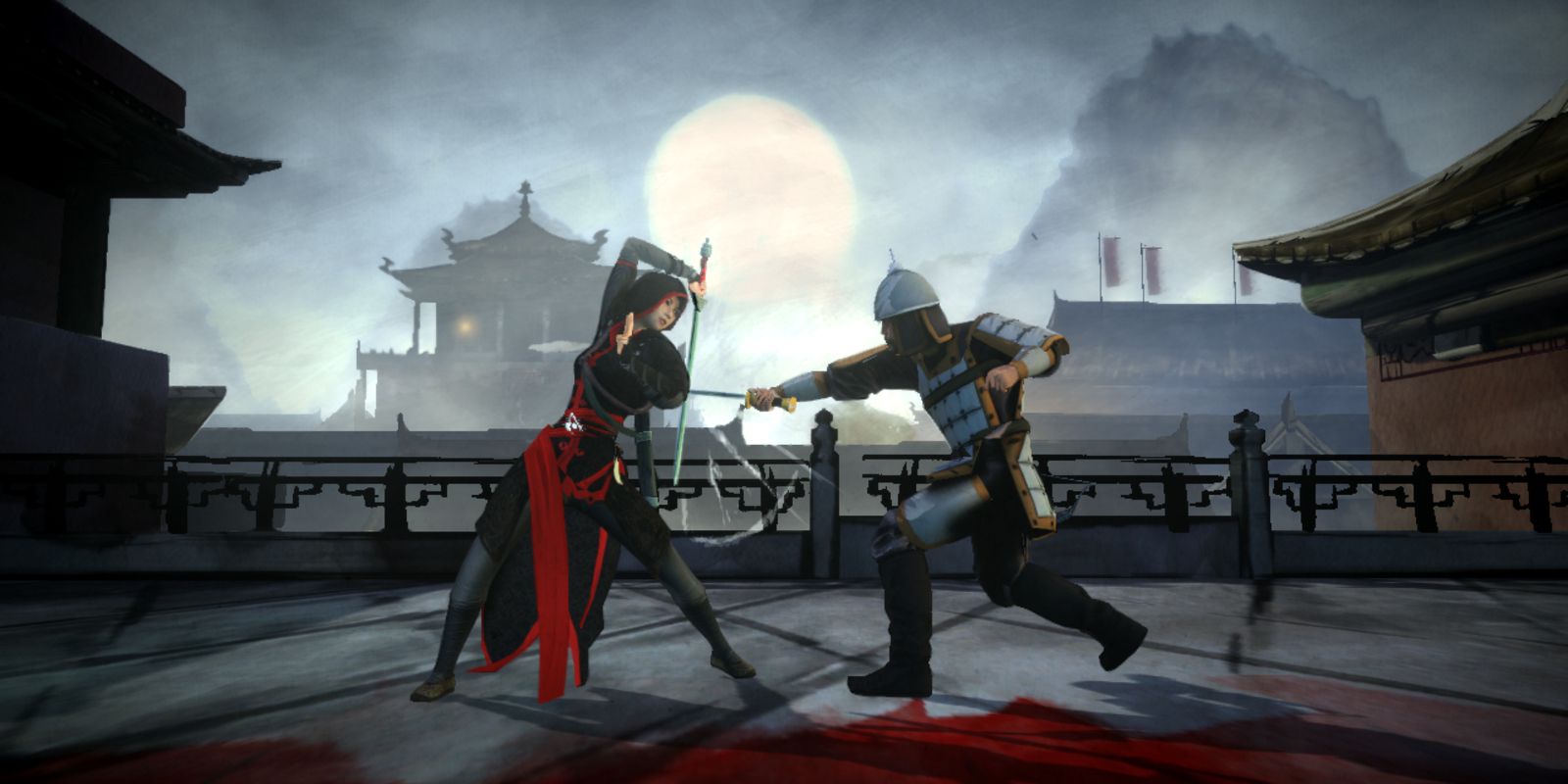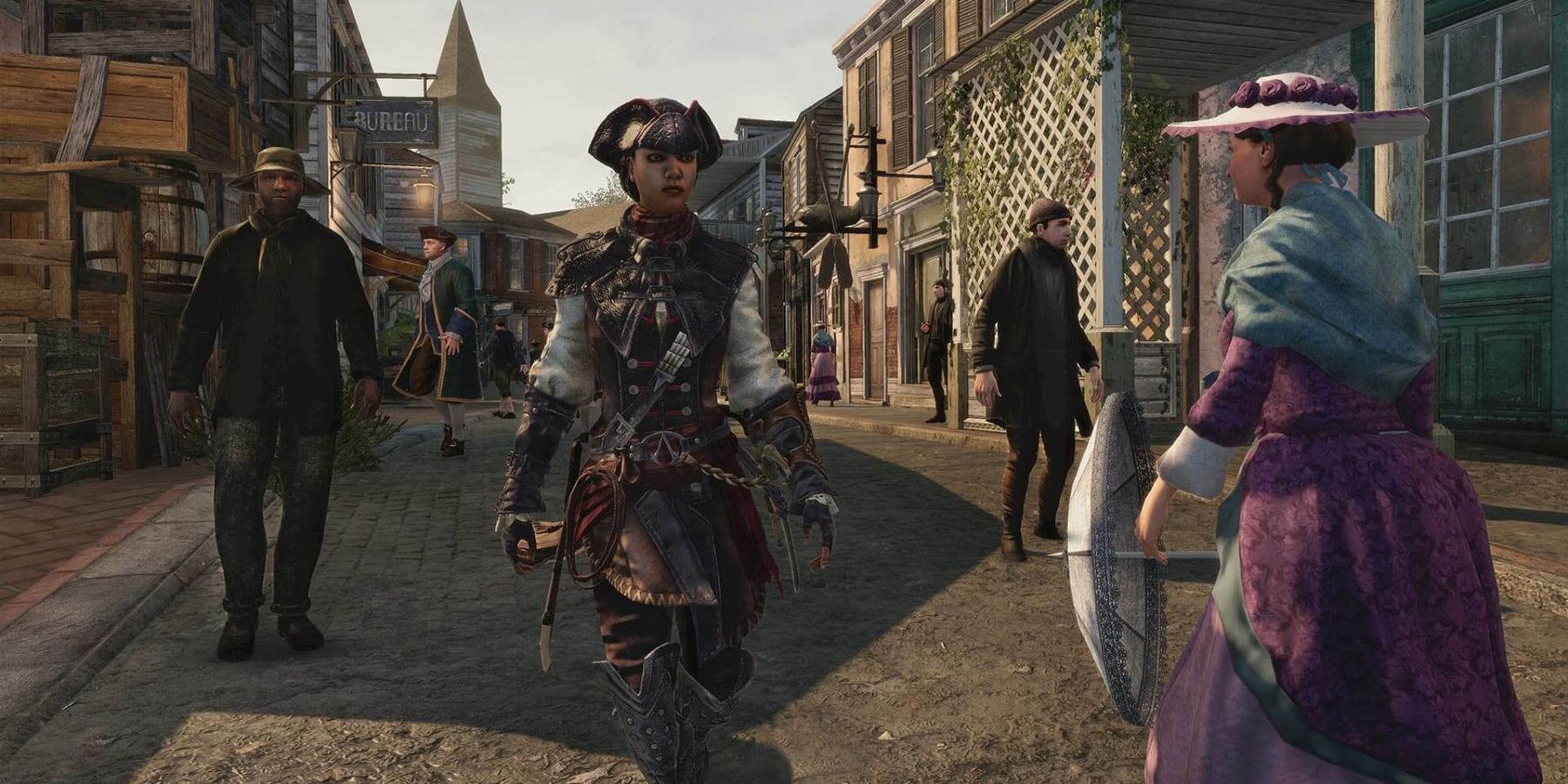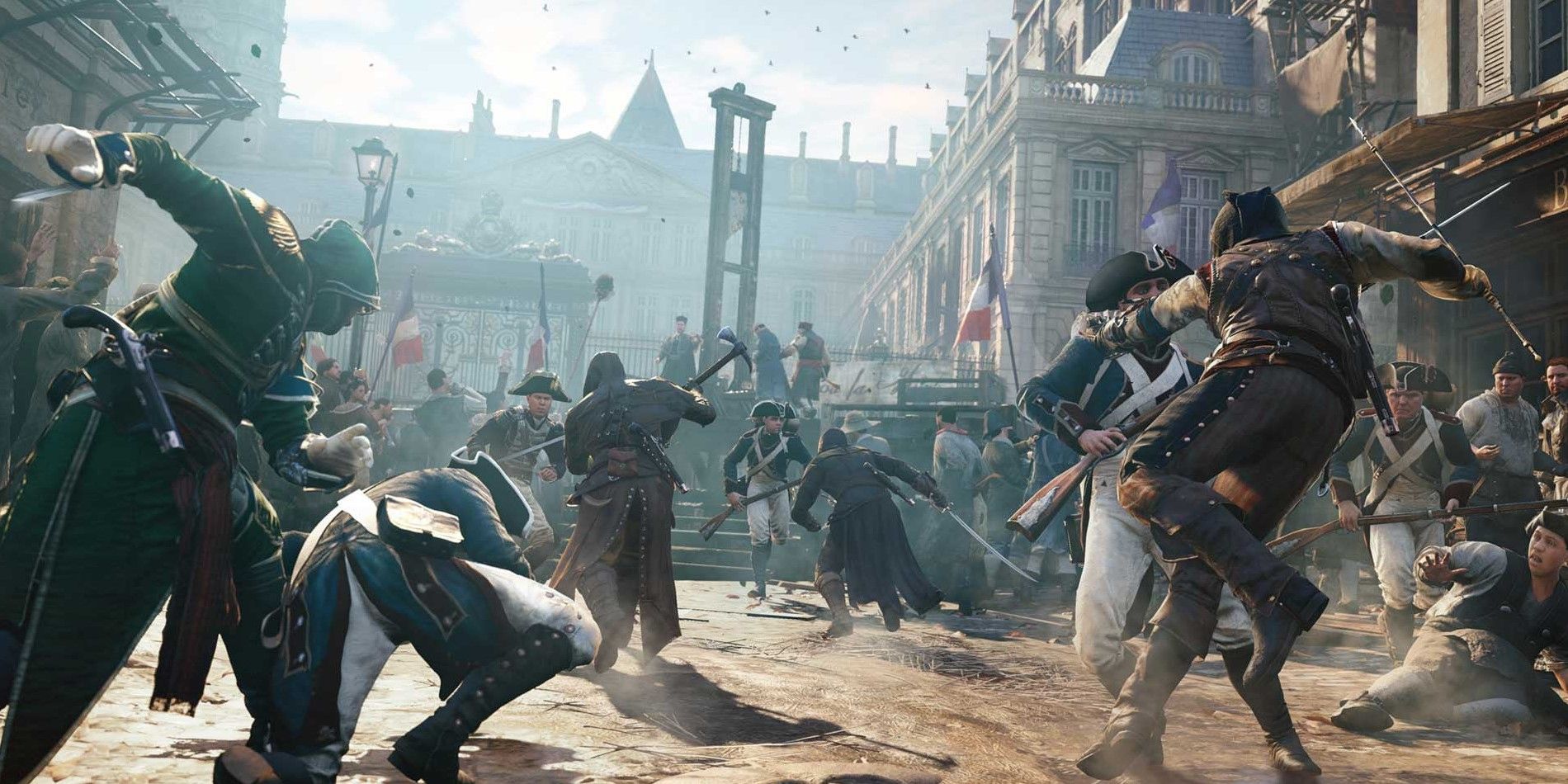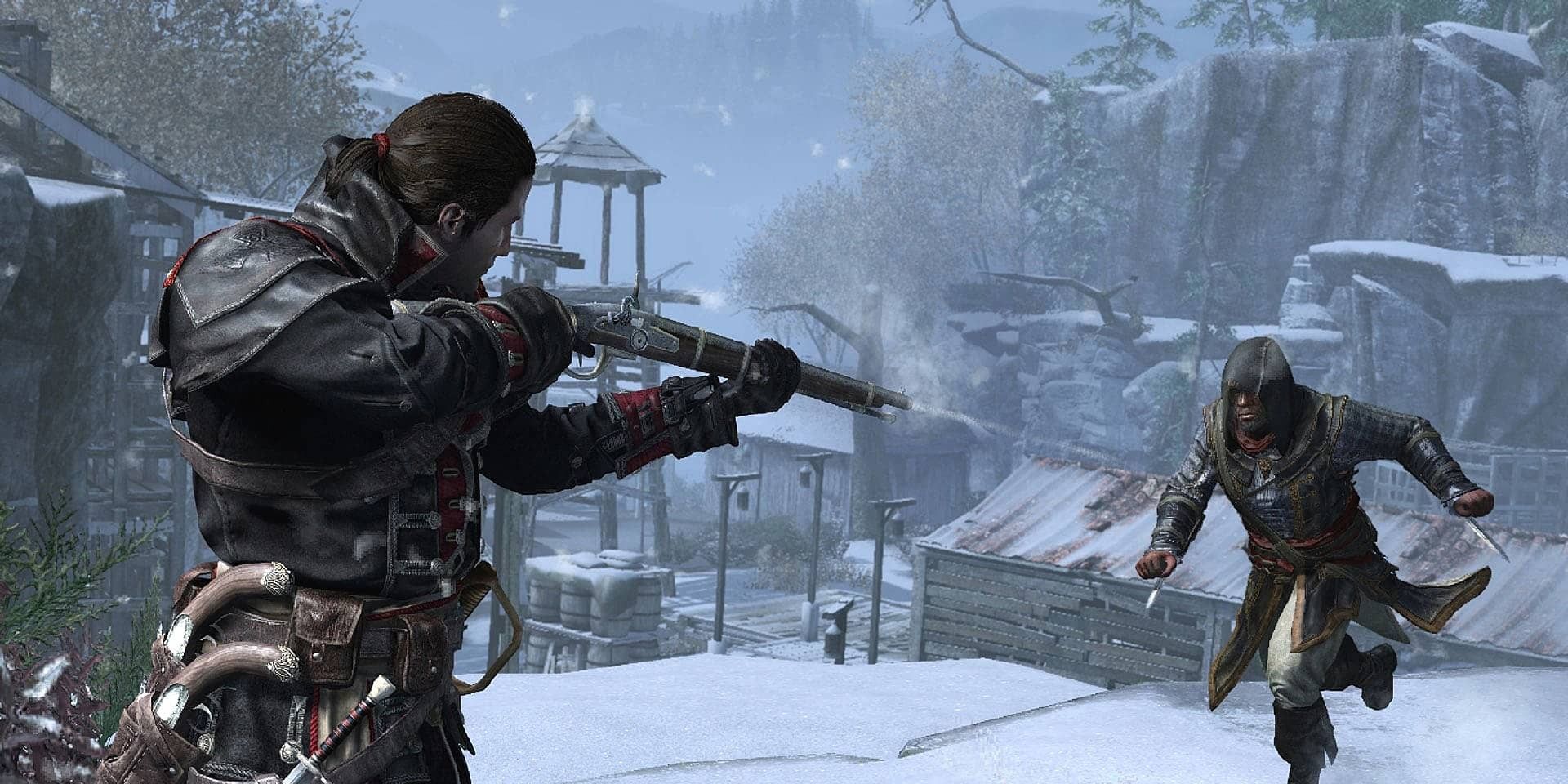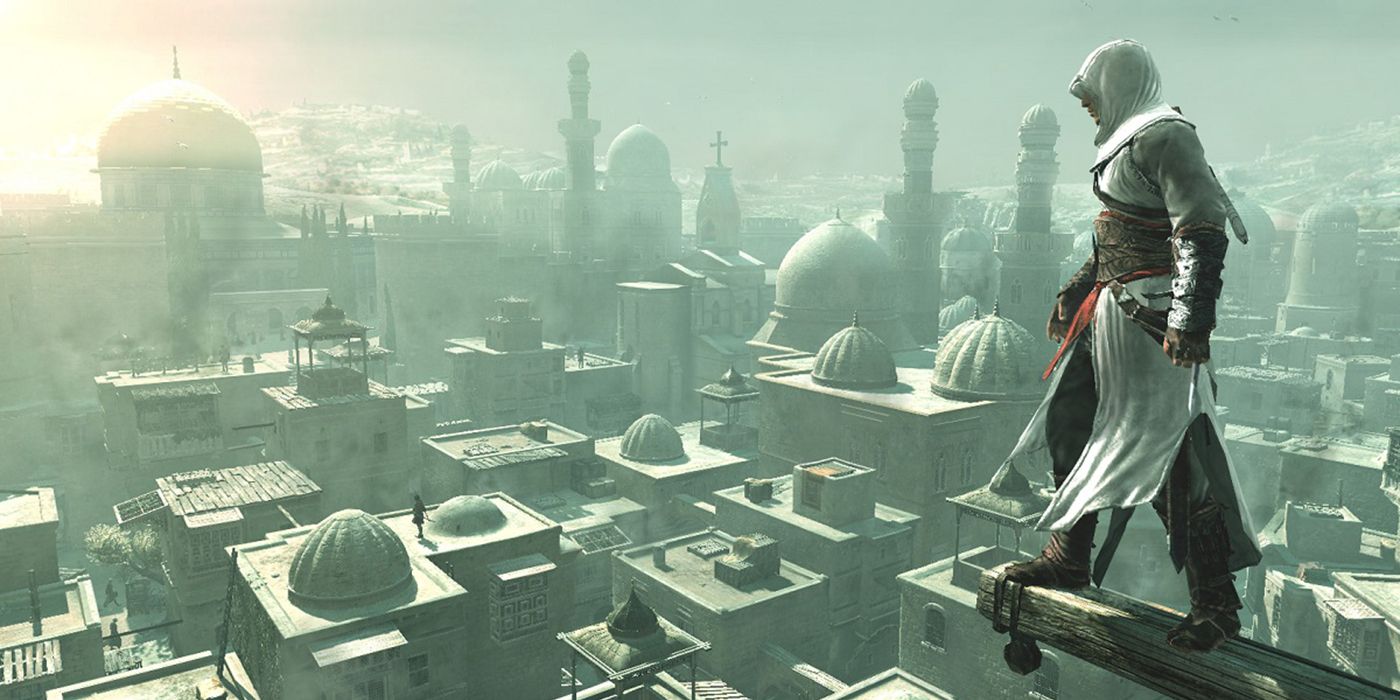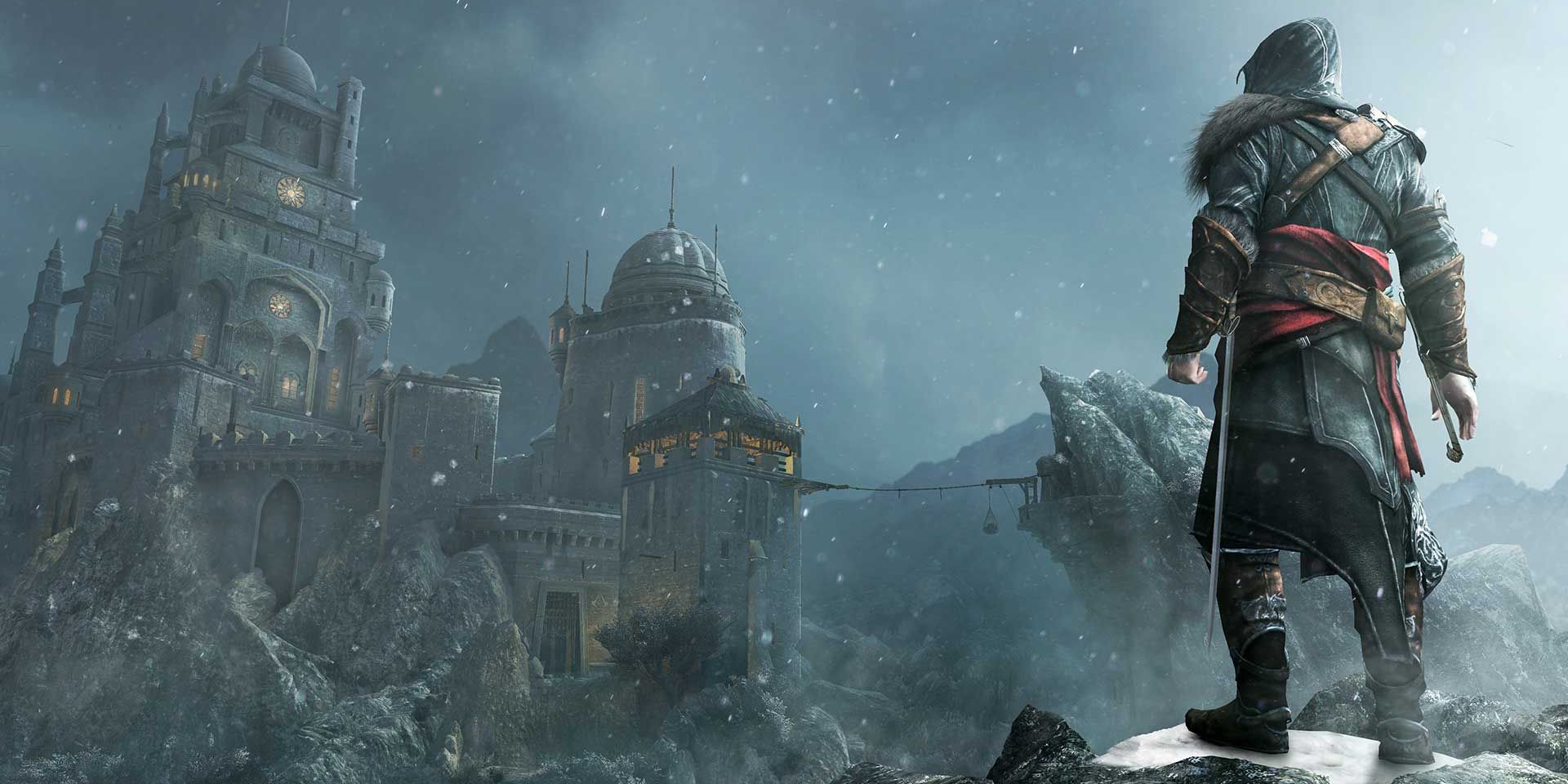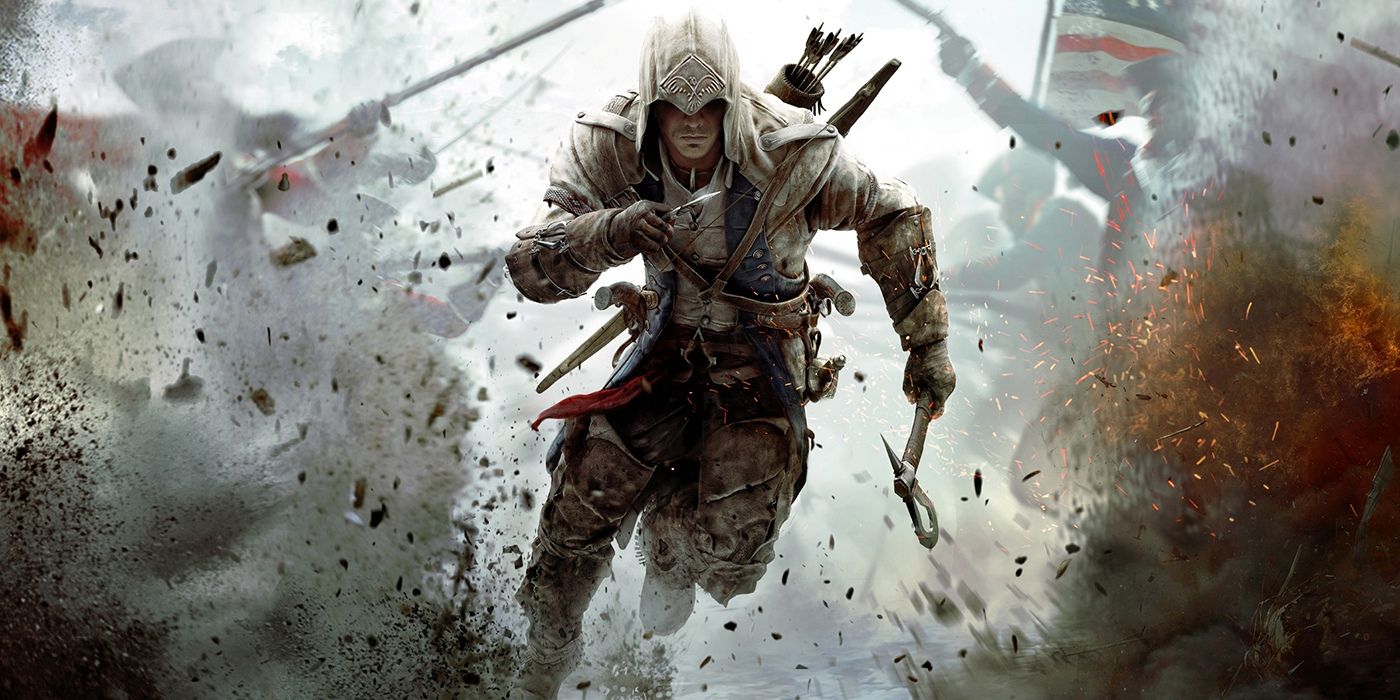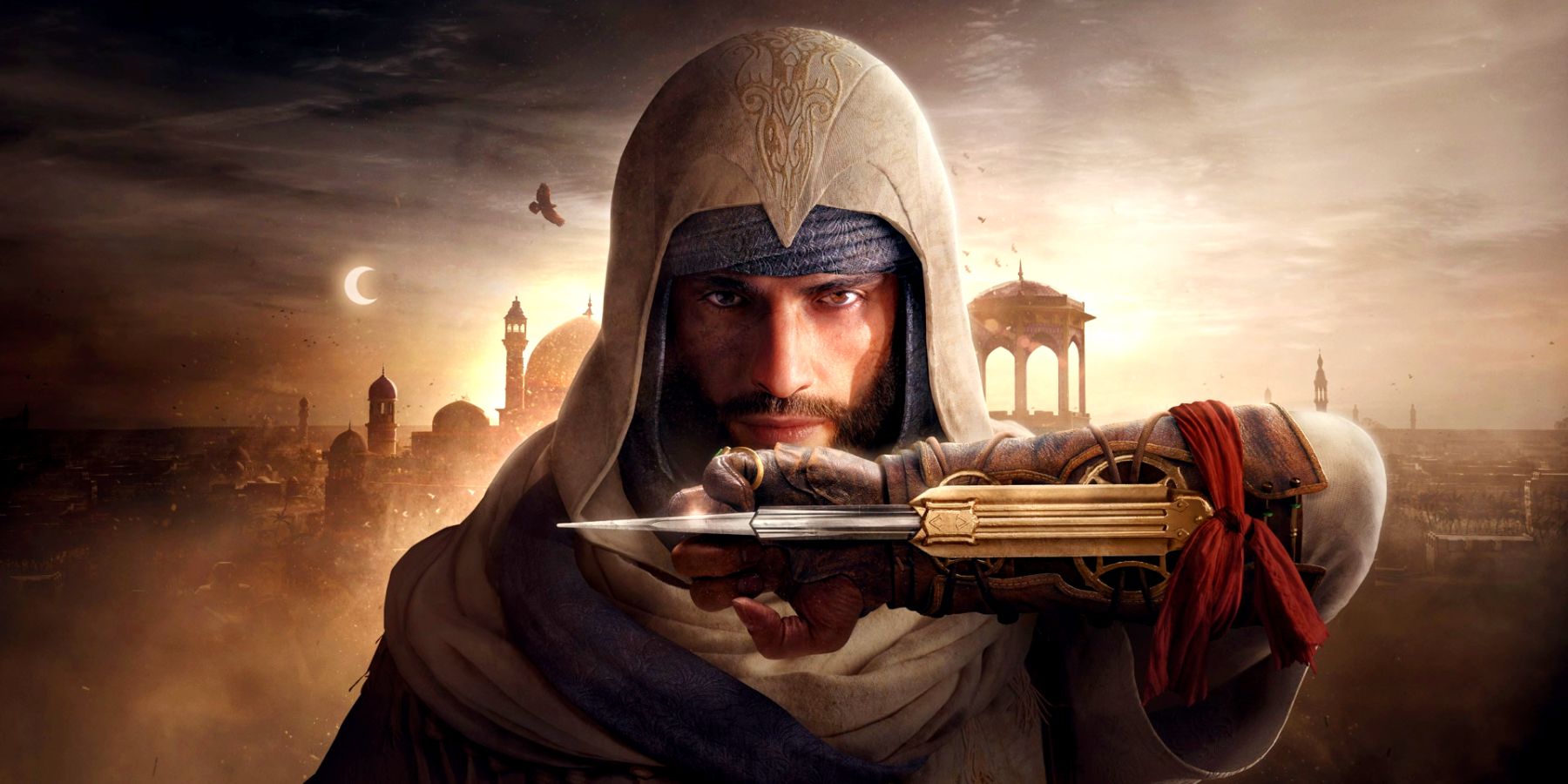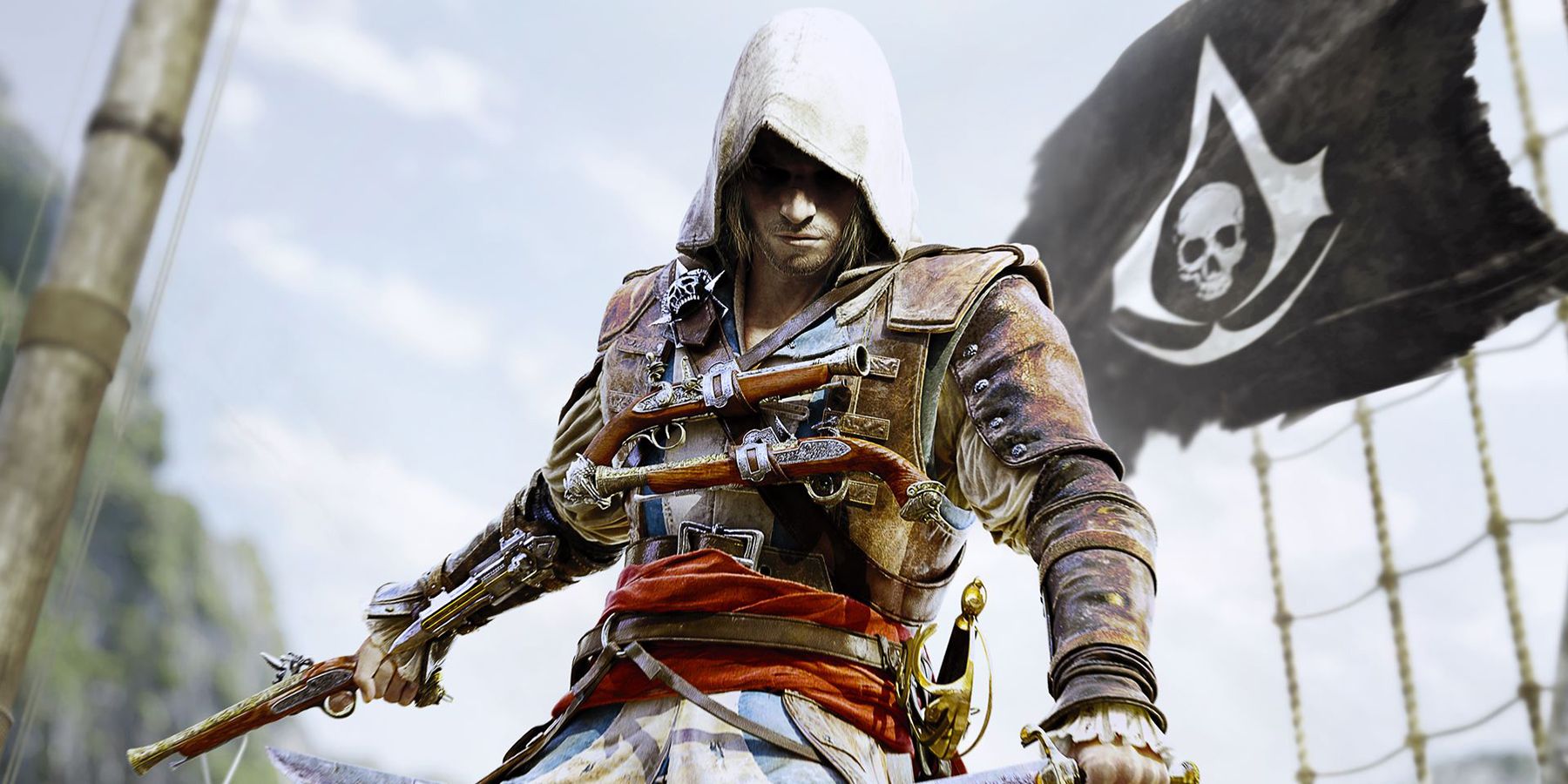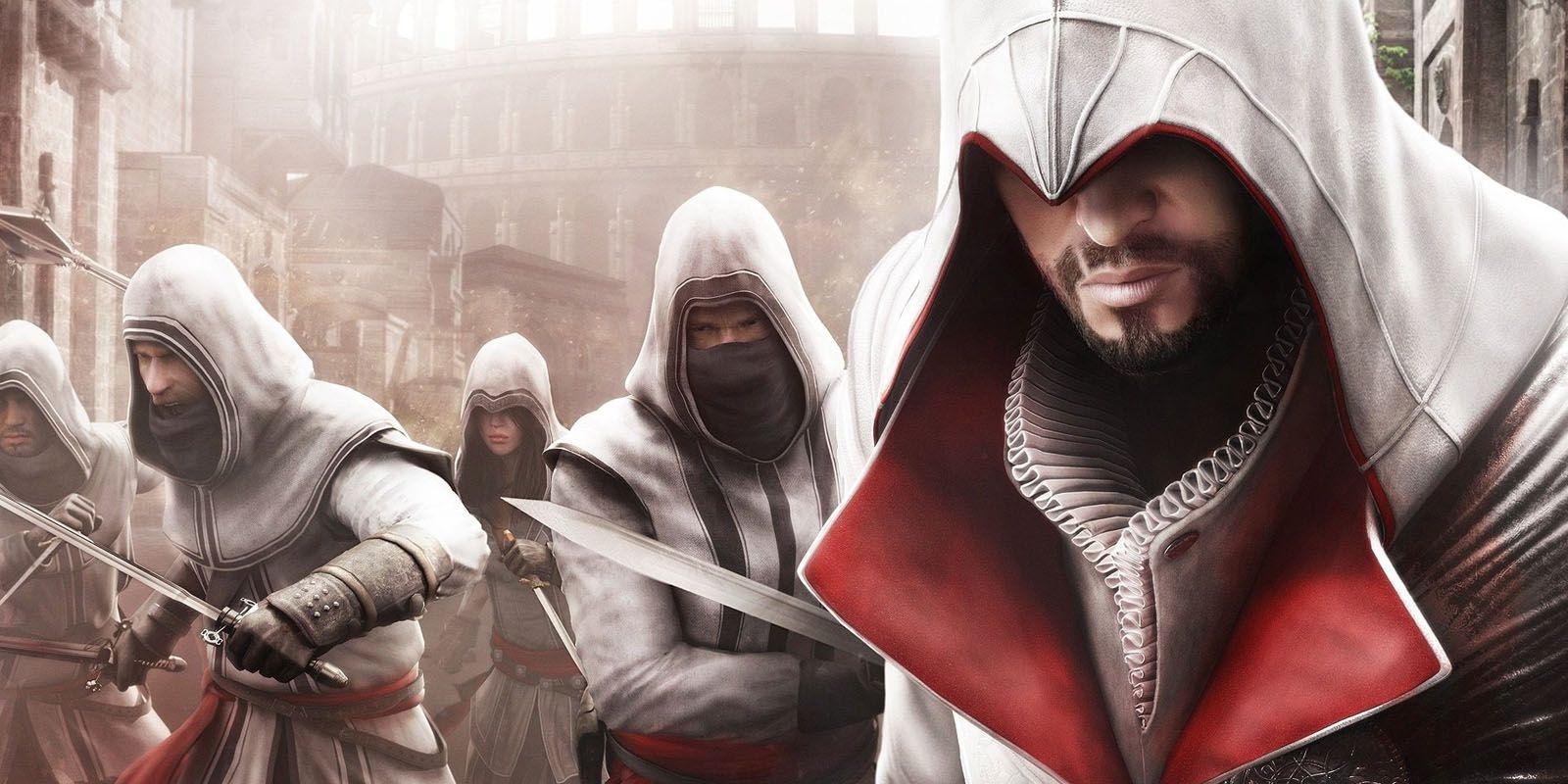Based on a unique premise, Assassin’s Creed successfully combines historical fiction and action-adventure to create a series of pulpy extravaganzas. Although the franchise has had its ups and downs, it’s continued to push boundaries, taking players into increasingly enveloping and engaging scenarios. Recent entries have taken players further into the past than ever before, and while opinions differ on its recent direction, the series has never strayed too long from providing fun and engaging titles.
Assassin’s Creed has never shied away from exploring new ideas and epochs, constantly evolving along with the industry and always offering something new that keeps critics satisfied and audiences in anticipation. Although frequent changes in gameplay and new directions in lore has caused concern for some series fans regarding the future direction of the franchise, no matter where the franchise heads in the future, it will have a strong legacy behind it.
21
Assassin’s Creed: Altaïr’s Chronicles
Released In 2008
With awkward controls on the Nintendo DS and more emphasis on stealth that makes it feel more akin to Prince Of Persia than Assassin’s Creed, Altaïr’s Chronicles was a poor first attempt at a handheld AC that landed a measly 58 on Metacritic. While it is impressive that Ubisoft was able to put an open world into a DS cartridge, it is clearly a rushed product.
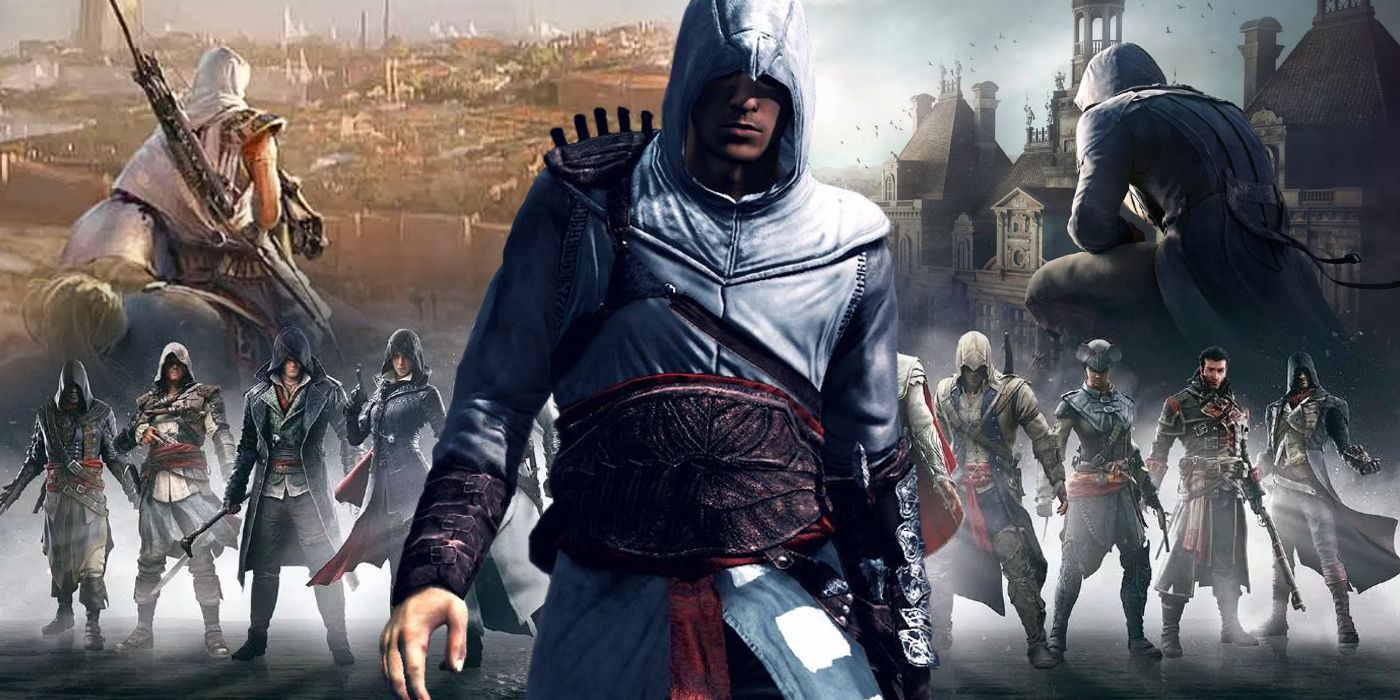
Related
How To Play Every Assassin’s Creed Game In Chronological Order
Assassin’s Creed is a massive series of games spanning throughout different points in history, but they can also be played in chronological order.
The biggest issue it faced with players was its length; it can be beaten completely in four to five hours. Even for an early Assassin’s Creed, that is way too short. Sadly, it also suffered from a flaw that the very first Assassin’s Creed had: the overrated protagonist Altaïr is not that interesting of a character.
20
Assassin’s Creed Chronicles: Russia
Released in 2016
The spin-off series of Assassin’s Creed was never universally beloved, but Chronicles did provide a unique 2.5D side-scrolling experience. However, fans were displeased with the copy-paste style of many Assassin’s Creed subseries entries, along with its general departure from the usual series formula.
The highlight of Assassin’s Creed Chronicles: Russia came in the form of its 1918 Russian setting, an era more technologically advanced than the franchise has ever explored. The World War I setting was refreshing, and the main character was interesting, but with a 61 on Metacritic, it still amounted to little more than an average clone of the first Chronicles game.
19
Assassin’s Creed: Bloodlines
Released In 2009
Altair made his return to the series with Assassin’s Creed: Bloodlines on the PlayStation Portable, one of only a few AC games made for handheld consoles. The gameplay was a step backward for the series – particularly since Assassin’s Creed 2 had recently released as a superior sequel to the original game and set a new standard for the franchise. While it was praised for giving Altaïr a proper return in a better story than Altaïr’s Chronicles, it only achieved a 63 on Metacritic.
Despite the impressively large map for a handheld title, the comparably unpolished and choppy gameplay made Bloodlines an unappealing alternative to the console games. A lot of this was due to the limitations of the PSP, a common problem with the system’s games.
18
Assassin’s Creed Chronicles: India
Released in 2016
Continuing from the first Chronicles, Assassin’s Creed Chronicles: India continues to explore unique settings, this time showcasing the beauty of 19th-century India during the Anglo-Sikh Wars. Many praised the visuals of India, but, like Chronicles: Russia, the sequel just does not do anything to innovate the spin-off series.
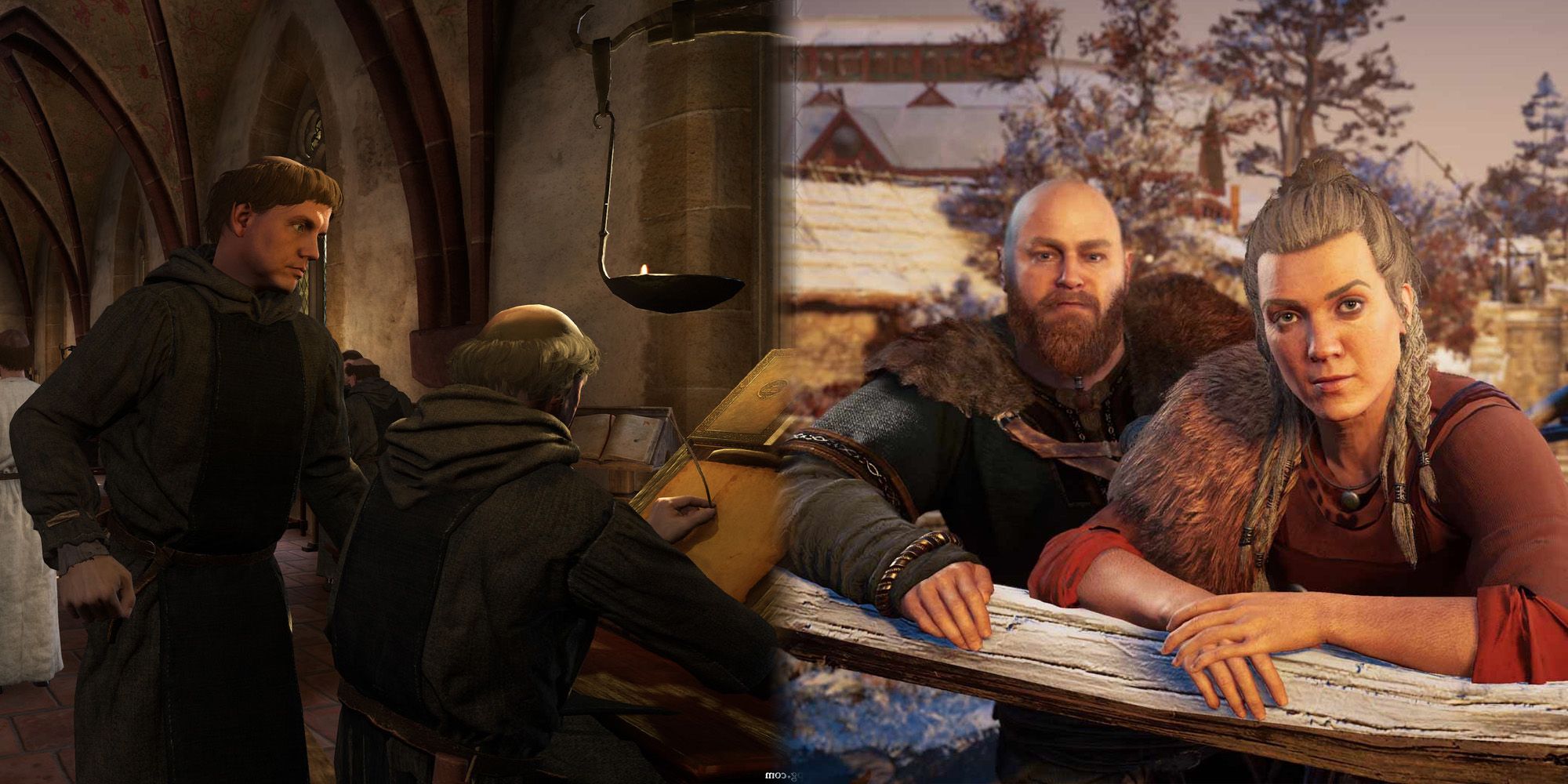
Related
Assassin’s Creed & Other Games That Are Wonderful History Lessons
Many games tell stories of complete fantasy, but these historically educational titles prove that authenticity and fun can go hand in hand.
Despite its lack of innovation, those who enjoyed the inaugural Chronicles game will likely enjoy its follow-up despite its mediocre 64 on Metacritic. Although it may not be an Assassin’s Creed spinoff worth playing for everyone, fans interested in a more challenging experience can find one in Assassin’s Creed Chronicles: India.
17
Assassin’s Creed 2: Discovery
Released In 2009
Ezio Auditore da Firenze finally got his chance to shine in a handheld title with Assassin’s Creed 2: Discovery. As such, the game received praise for continuing the legacy of one of the most beloved main characters of the whole franchise and managing to improve upon the formula. Released for the Nintendo DS, its side-scrolling gameplay was different from the open-world, 3D stealth of the main series, but still presented an entertaining experience.
Unfortunately, Discovery doesn’t quite manage to be anything beyond solid, showcased by the 69 it received on Metacritic. Like Altaïr’s Chronicles, the game is far too short and largely comes across as a watered-down clone of Prince Of Persia, with worse level design and awkward controls, albeit with a decent story that takes place after the events of Assassin’s Creed 2‘s DLC.
16
Assassin’s Creed Chronicles: China
Released In 2015
The first of the Chronicles spin-offs is definitely the best, taking players to one of the most perfect Assassin’s Creed settings for the first time: Ming Dynasty China. The main protagonist, Shao Jun, has the credit of being one of the franchise’s first playable female Assassins. The character was also praised due to her more grounded story and respectable portrayal of an Asian character.
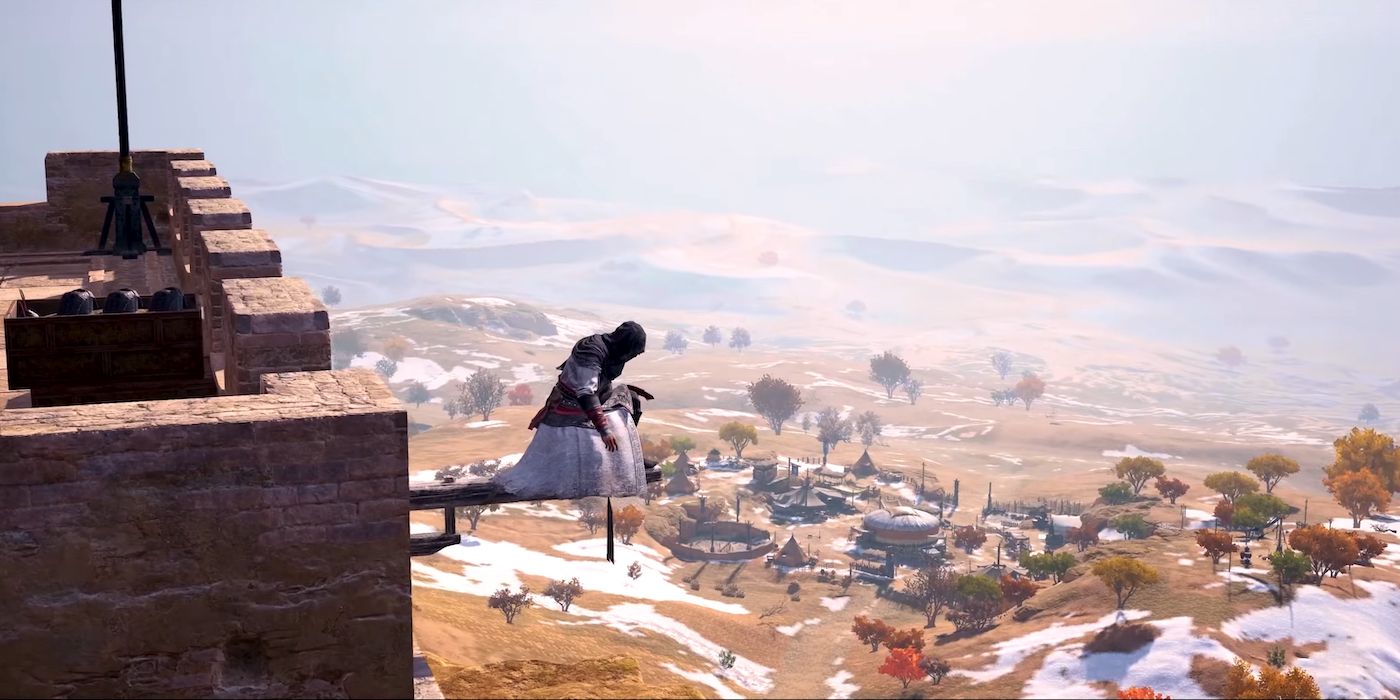
Related
How Assassin’s Creed Jade Is Changing AC Combat & Gameplay
Assassin’s Creed Jade will attempt to translate the open-world series into a mobile experience, which will lead to some dramatic gameplay changes.
A more straightforward side-scrolling action/stealth game, Chronicles: China is a refreshing break from the open-world vastness of the main titles. The game’s average score of a 69 on Metacritic showcases its limitations, but the title could have been a lot worse. There’s no reason for hardcore Assassin’s Creed fans to not give Chronicles: China a chance.
15
Assassins Creed 3: Liberation
Released In 2012
Despite its title making it sound like DLC for Assassin’s Creed 3, Liberation is actually a spin-off developed exclusively for the new – at the time – PlayStation Vita. When it comes to the Vita, Assassin’s Creed 3: Liberation is often considered a must-have game for Sony’s most recent handheld console.
It keeps the typical open-world gameplay that Assassin’s Creed is known for and, despite some slowdown, manages to hold up reasonably against its console counterparts. It is praised for replicating the Assassin’s Creed 3 gameplay while introducing the first female Assassin and a unique new location. However, critics disliked its barebones story, balancing it out at a 70 on Metacritic. Liberation was so beloved – relative to the other side games, at least – that it even got an HD remake for two different generations of consoles.
14
Assassin’s Creed Unity
Released In 2014
2014 was not a good year for Assassin’s Creed. Both releases received the lowest scores of any console games in the entire franchise, with Assassin’s Creed: Unity achieving a score of 71 on Metacritic. The plot is set during the French Revolution and centers on Arno Victor Dorian’s efforts to expose the true powers behind the revolution. It’s a setup AC fans had been hoping to see for some time, but it was marred with shortcomings.
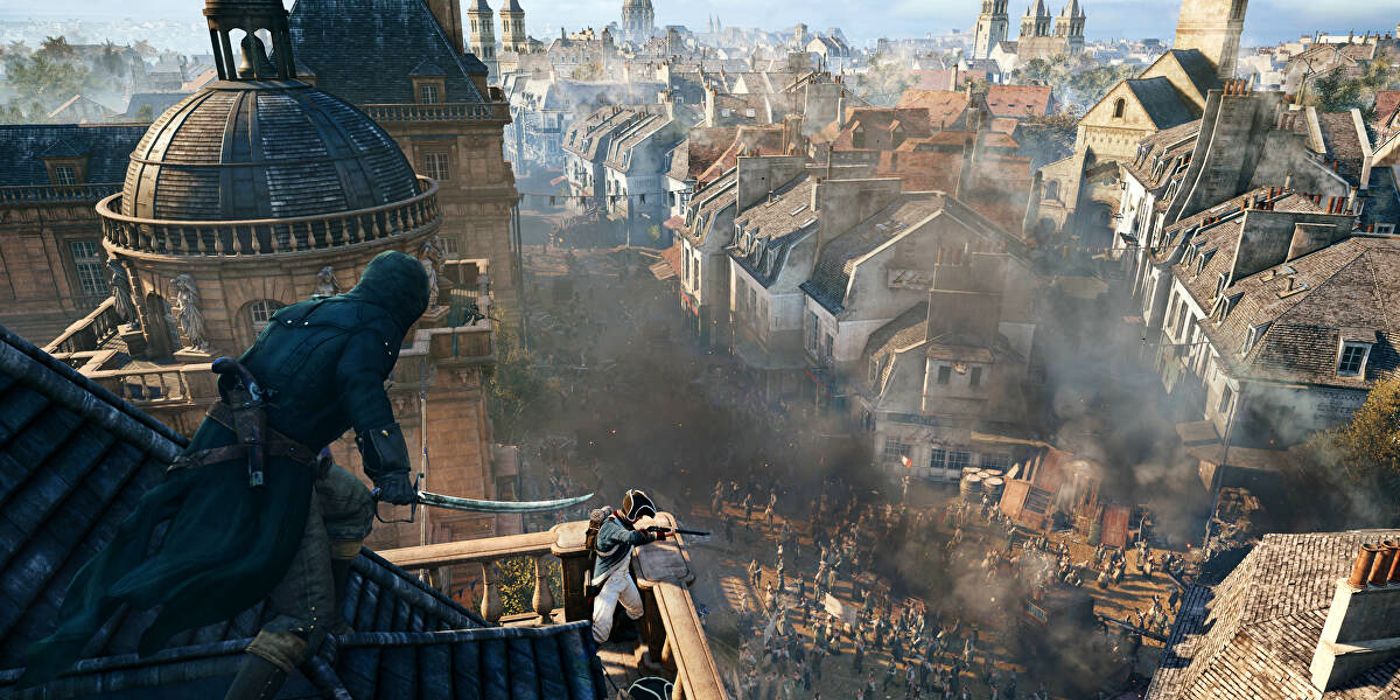
Related
Ubisoft Learned The Wrong Lessons From Assassin’s Creed Unity
From buggy launches to the removal of good features, it appears Ubisoft has learned the wrong lessons following Unity’s launch back in 2014.
Often considered the worst Assassin’s Creed, Unity drew criticism centered on the game’s small scope and numerous technical issues, which included notorious bugs, rampant glitches, poor graphics, and performance and connectivity issues. Although patches improved the game and its parkour system was never lacking, it never reached the heights of prior titles due to its rough launch.
13
Assassin’s Creed Rogue (2014)
Released In 2014
The first of two games released in 2014, Assassin’s Creed: Rogue‘s final mission actually serves as the prologue for Unity. Set during the Seven Years’ War, Rogue follows Shay Patrick Cormac, an Assassin turned Templar, in his efforts to hunt down and kill members of the Brotherhood who betrayed him.
With a weighted average of 72, Rogue holds a “mixed or average reviews” grade on Metacritic. Praise went to the primary twist of playing as an Assassin’s Creed Templar instead of an Assassin, as well as the complexity of the titular character. The game, however, failed to innovate or deliver a sailing experience as strong as Black Flag, and featured a generally predictable plot.
12
Assassin’s Creed Syndicate
Released In 2015
Things improved somewhat in 2015, though the franchise remained at a low point with Assassin’s Creed: Syndicate. With a Metacritic score of 76, firmly set in the “mixed or average reviews” camp, Syndicate follows twin Assassins Jacob and Evie Frye’s attempts to take back their city – Victorian London – from Templar control.
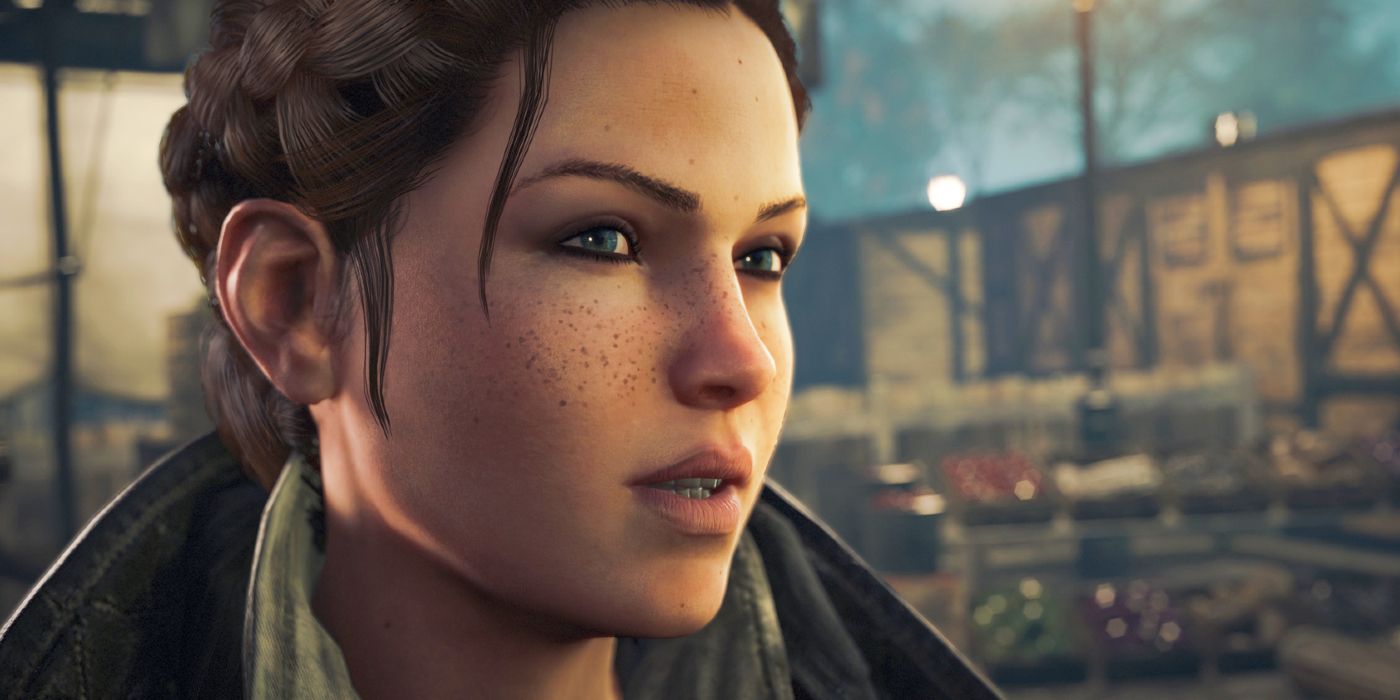
Related
Assassin’s Creed Syndicate: Evie Deserved To Be The Main Character
Assassin’s Creed Syndicate’s Evie Frye should have been the main character as she was the stealthier and more responsible sibling compared to Jacob.
Syndicate offered an improvement on Unity and Rogue, with particular praise going to the plot, graphics, and missions. Many considered it a return to form for the franchise, although the repetitiveness of the gameplay acted as a strong downside. Syndicate made significant changes to AC‘s combat style, which, while fresh, were not universally well-received.
11
Assassin’s Creed
Released In 2007
The game that started it all, the first Assassin’s Creed showed the promise of the series from the beginning. It takes place during the Third Crusade in the Holy Land and introduces Desmond Miles, the franchise’s modern-day lead – at least, during the first few games. The central conflict between Assassins and Templars is also introduced here – a plot poiny that’s largely fallen by the wayside some 15 years later.
Praised for its innovative premise, engaging storytelling and visuals, and overall originality, Assassin’s Creed received a weighted average of 80 on Metacritic. Although its innovations are still interesting today, the characters and gameplay of later entries have improved in variety and entertainment. The first Assassin’s Creed, though, is still remembered fondly.
10
Assassin’s Creed: Revelations
Released In 2011
The fourth game in the main series, Revelations continues the story of Desmond Miles, still voiced by Nolan North, as he tries to avert the 2012 apocalypse. It is mainly set during the 12th and 13th-century in Masyaf, Cappadocia, and Constantinople.
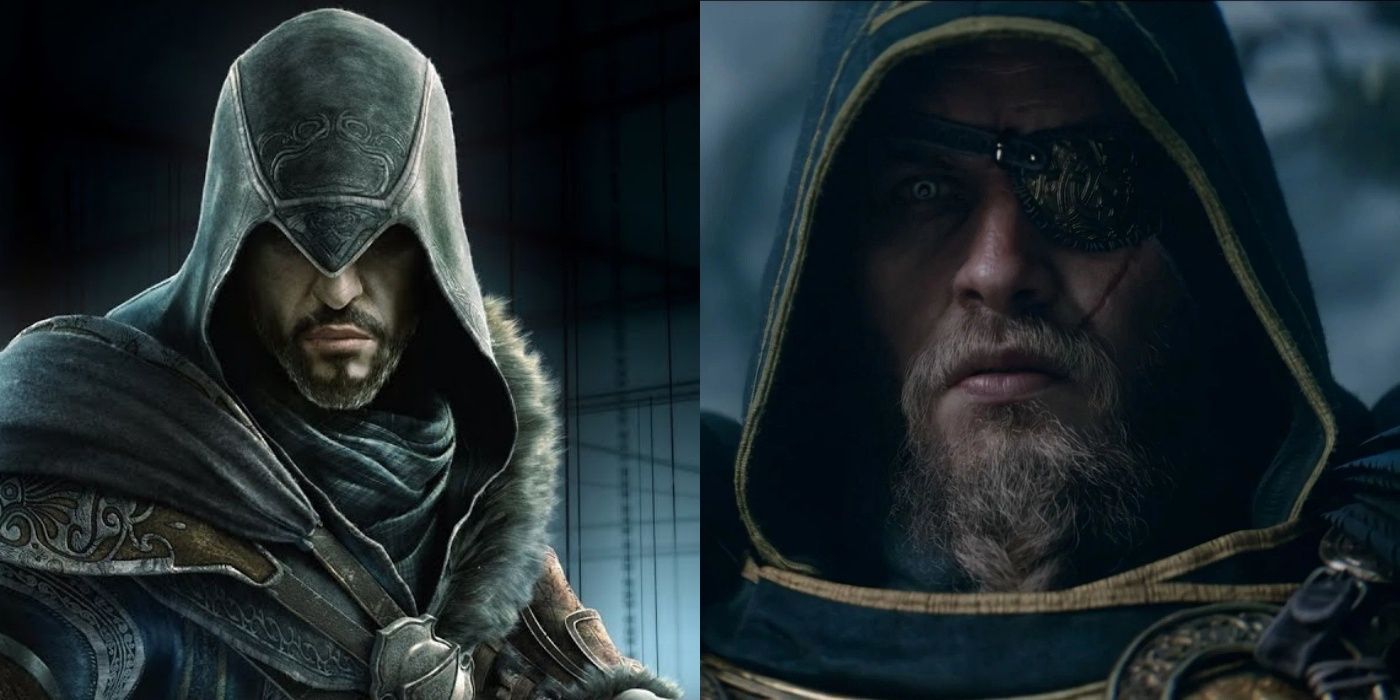
Related
Dawn Of Ragnarok’s Trailer Has A Hidden Nod To AC Revelations
The announcement trailer for AC Valhalla’s Dawn of Ragnarok DLC features a clever nod to the CG trailer that accompanied AC Revelations’ 2011 reveal.
Following up the acclaim offered to Assassin’s Creed 2 and Brotherhood, Revelations took a slight downturn by adding only superficial changes and covering a less compelling part of Ezio’s complete Assassin’s Creed story. It still brought a solid experience to the table and also stands as the first (and so far only) game where all its versions received the same grade on Metacritic, with PC, Xbox 360, and PS3 all getting an 80 “generally favorable” review.
9
Assassin’s Creed Odyssey
Released in 2018
Premiering in 2018, Assassin’s Creed: Odyssey brought the franchise into full RPG mode, a decision that wasn’t universally popular. Odyssey took players further into the past than ever before, taking place between the years 431-422 BC. Set against the backdrop of the Peloponnesian War, the player controls a mercenary who fights for both sides as they attempt to find their family.
Odyssey received critical acclaim for its characters (particularly when choosing the strong Assassin’s Creed protagonist Kassandra), scope, setting, plot, gameplay, and story, gaining an 85 on Metacritic. However, the game’s reach sometimes exceeded its grasp, and a focus on having an enormous amount of content led to some of the missions feeling repetitive or trite. With a focus on making players explore and grind for achievement, Odyssey‘s best features could only sometimes overcome its weaknesses.
8
Assassin’s Creed 3
Released In 2012
The sequel to Revelations and the fifth game overall, Assassin’s Creed 3 continues the apocalypse storyline and is set during the American Revolution. It received generally positive reviews, with an average weighted score of 83 on Metacritic, and positive feedback focused on its missions and scale.
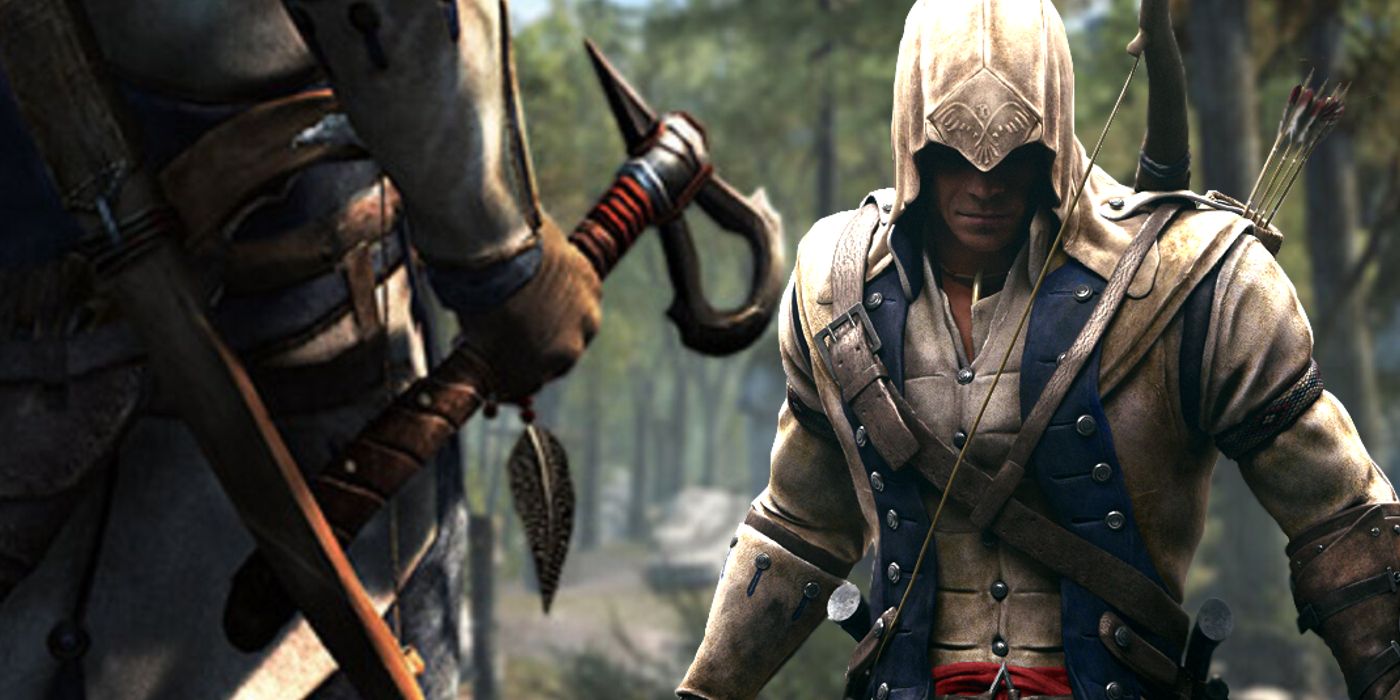
Related
Assassin’s Creed 3 Gave Connor The Series’ Coolest Weapon
Assassin’s Creed 3 revamped much of the series’ gameplay, with the highlight of combat being Connor Kenway’s brutal yet elegant tomahawk.
The game courted some controversy when it was accused of anti-British sentiment while promoting American nationalism, particularly in its marketing. Once released, critics agreed that the depiction of both sides was balanced, with reviewers concurring with the developers claim that the game did not portray or endorse jingoism. Assassin’s Creed 3‘s excellent opening gives way to uneven story pacing, which coincided with a buggy release to make Assassin’s Creed 3 compare unfavorably against the high points of the Ezio games. Highlights like naval combat and tomahawk action, however, go a long way in counterbalancing flaws.
7
Assassin’s Creed Shadows
Released In 2025
Assassin’s Creed Shadows takes players to one of the most-requested settings for the series: feudal Japan, where players get caught in the aftermath of daimyo Oda Nobunaga’s death as a fractured, war-torn Japan attempts to unify. It features dual protagonists with entirely different playstyles: the stealth-focused shinobi Naoe, and the combat-ready samurai Yasuke.
With an 81 on Metacritic, AC Shadows received mostly favorable reviews. Critics praised its memorable characters and generally fun gameplay, but disliked its disorderly and sometimes clichéd story. It was also criticized for failing to innovate on the Assassin’s Creed formula. While it introduces some new elements, their overall effectiveness is mixed. Still, it presents some excellent stealth gameplay in a beautiful package.
6
Assassin’s Creed Valhalla
Released In 2020
The second entry in the Assassin’s Creed RPG venture, Valhalla serves as a direct successor to Odyssey. Set during the Viking Invasion of Britain circa 872 CE, the player assumes control of the Viking Eivor, who becomes involved in the ancient conflict between Templars and Assassins.
Highly anticipated since its announcement, Valhalla received praise for its narrative and world design. Some side content can feel repetitive, but a less grindy approach to equipment marks an improvement from Odyssey. An average score of 83 on Metacritic shows that Valhalla‘s familiar approach doesn’t hold it back from being a good overall experience.
5
Assassin’s Creed Mirage
Released In 2023
Assassin’s Creed Mirage is a prequel to Valhalla, taking place 11 years before in ancient Baghdad, with its story centering on a street thief turned Hidden One, Basim Ibn Ishaq. Basim plays a key role in Valhalla, but Mirage is perfectly playable as a standalone experience, using its predecessor’s foundation to deliver a game closer to the classic stealth action the series was known for originally. The overarching story of Mirage falters in some key places, but its gameplay is a delightful throwback, and the majority of its immediate narrative within Baghdad more than makes up for any low points.
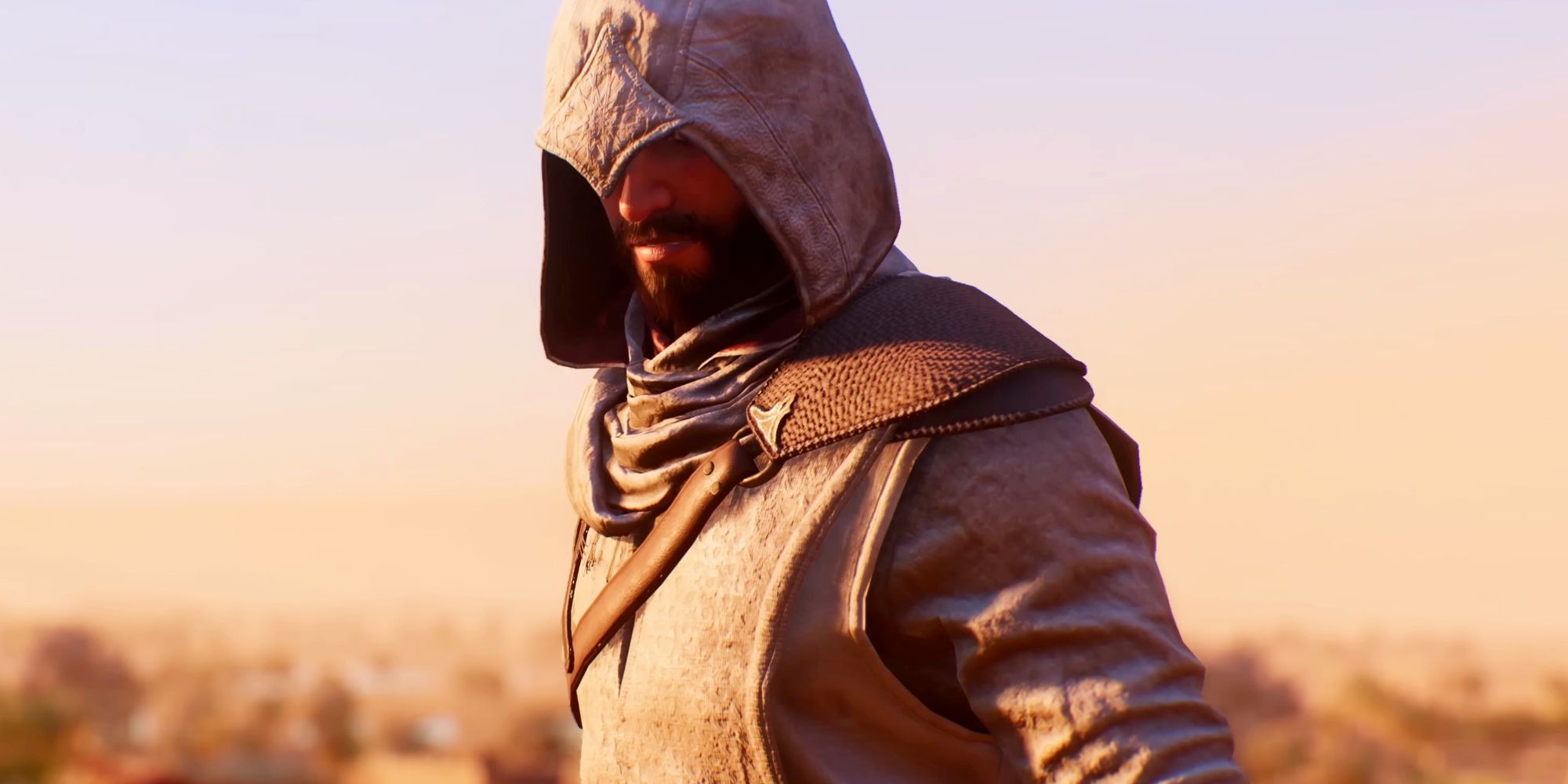
Related
“A Triumphant Homage” – Assassin’s Creed Mirage Review
Assassin’s Creed Mirage marks a concerted effort for the series to return to its roots, but that doesn’t make it immune to longstanding issues.
Mirage feels like a return to the series’ roots through-and-through, recentering the conflict between the Hidden Ones and the Order of the Ancients, organizations that would go on to become the Assassin Brotherhood and Templar Order respectively. This focus makes assassination Basim’s main objective in numerous missions, peeling back the facade of Baghdad’s high society to find the Order’s rot within. This focus on investiagation makes it heavily reminiscent of the original Assassin’s Creed, but Mirage doesn’t suffer from the same repetitiveness.
4
Assassin’s Creed 4: Black Flag
Released In 2013
Black Flag represented substantially different gameplay from prior Assassin’s Creed games. Set in the 18th-century Caribbean during the Golden Age of Piracy, the game features a great deal of ship-based action, with particular emphasis on strategy and exploration. Black Flag follows Welsh pirate Edward Kenway, voiced by Matt Ryan, who stumbles upon the Assassin/Templar conflict.
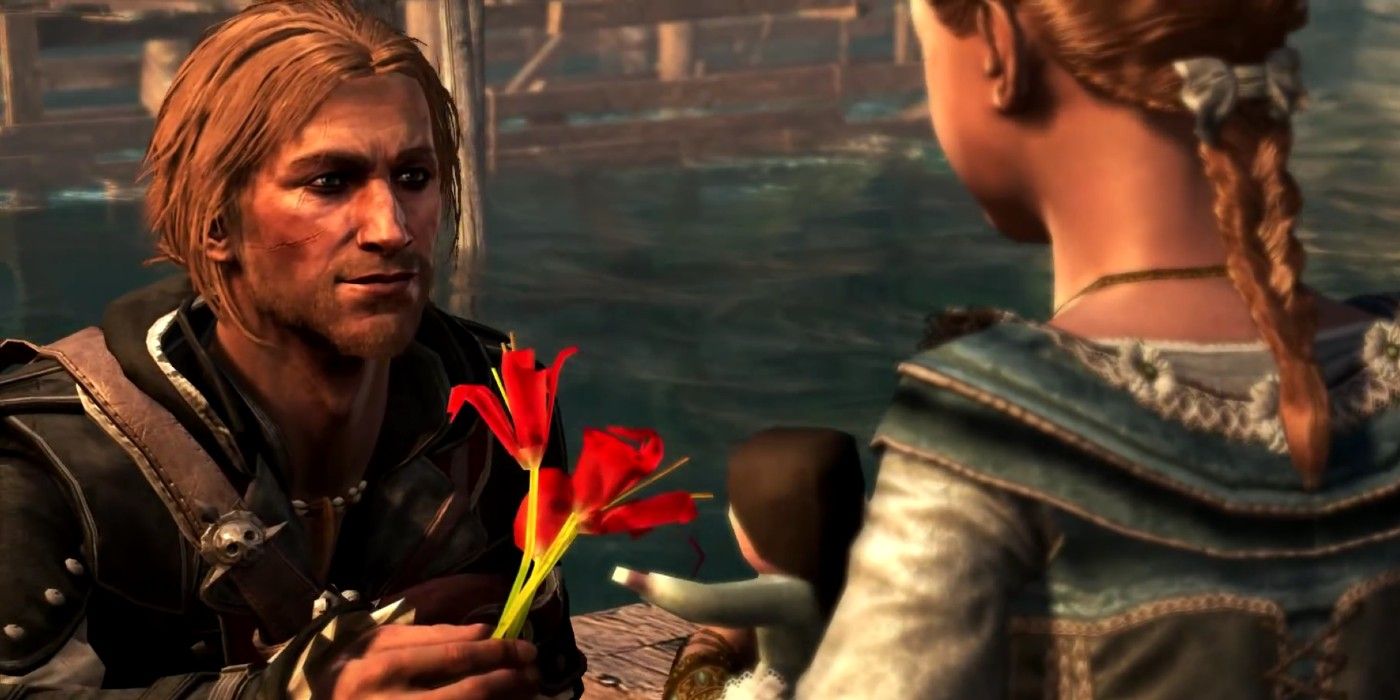
Related
Assassin’s Creed: Edward Kenway Deserved His Own Ezio Trilogy
Black Flag’s rugged protagonist, Edward Kenway, totally deserved his own Ezio trilogy due to his uniquely charming personality and pirating history.
Critically acclaimed upon release, Black Flag made an interesting and successful change-up to the traditional formula that no entry has lived up to since. Although Black Flag‘s open world tends to ping-pong players from mission to mission, its large scope marked an exciting change for the series, and its expansion of Assassin’s Creed 3‘s naval gameplay resonated with fans. With an 85 Metacritic score, it received high notes in all its iterations, with its PS3 version as the highest-rated.
3
Assassin’s Creed: Brotherhood
Released In 2010
Entering into the golden age of Assassin’s Creed, Brotherhood marks the second installment of the Assassin’s Creed trilogy headlined by protagonist Ezio Auditore da Firenze. His quest to restore the Assassin order continues, as well as his goal of bringing down his enemies, the powerful Borgia family.
Set in 16th-century Italy, mainly Rome, Brotherhood earned critical acclaim. The PS3 version achieved a 90 on Metacritic, although its weighted average is 89 when counting the Xbox 360 and PC versions. Although the story doesn’t always operate at the heights of Assassin’s Creed 2, an excellent setting, improved gameplay, and interesting side content made it a more than worthy follow-up to a legendary predecessor.
2
Assassin’s Creed Origins
Released In 2017
Assassin’s Creed: Origins is set in Egypt at the end of the Ptolemaic Period circa 49 BCE. It explores the conflict between the Hidden Ones, ancestors of the Assassins, and The Order of the Ancients, who were forerunners of the Templars. It emphasizes role-playing elements but retains the open-world and stealth elements typical of the franchise.
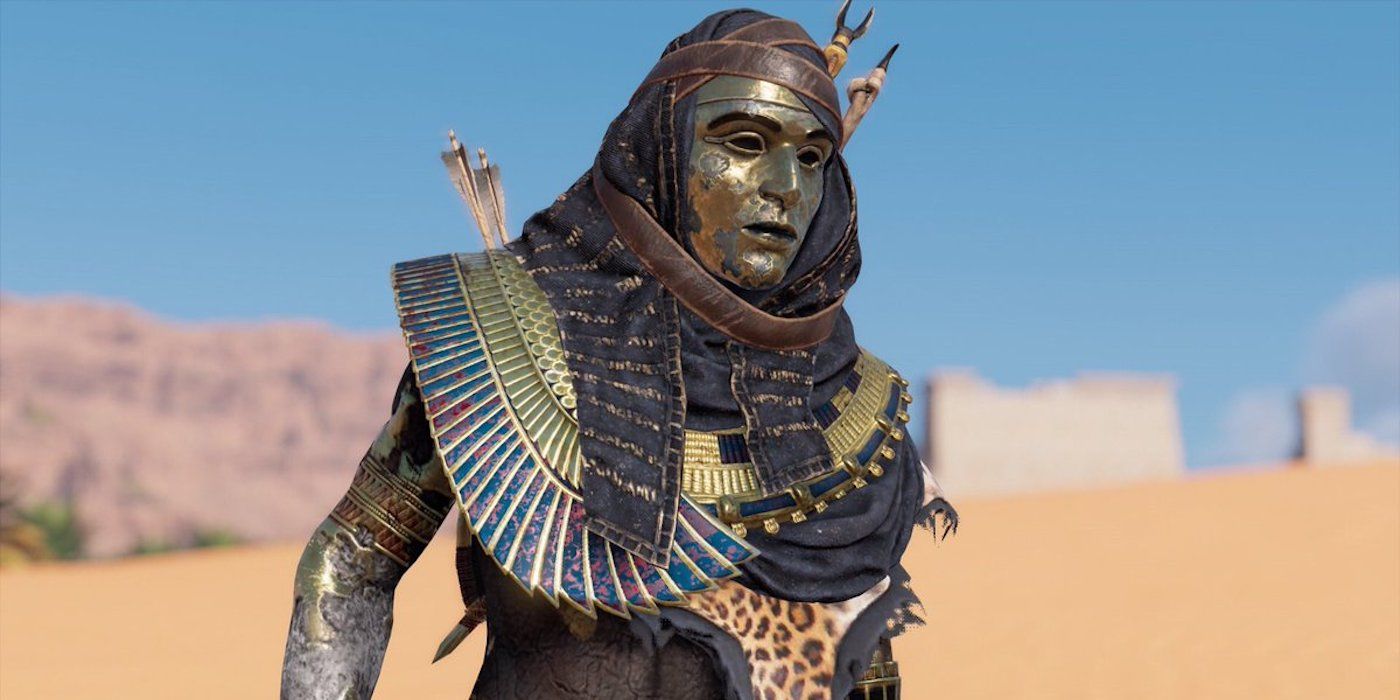
Related
Assassin’s Creed Origins Bayek Cosplay Is Worthy Of The Gods
An amazing Assassin’s Creed Origins cosplay recreates Bayek’s Servant of Amun armor, complete with the outfit’s gold mask and a winged shield.
The enormous Assassin’s Creed Origins map leads to a slower pace than prior games in the series, but the game excels in many other regards. The engaging protagonist Bayek has a compelling and personal story, and clearing enemy camps proves more engaging than prior games thanks to interesting combat and design. With an average of 83 on Metacritic, indicating “generally positive reviews,” Origins successfully took Assassin’s Creed into new and exciting territory.
